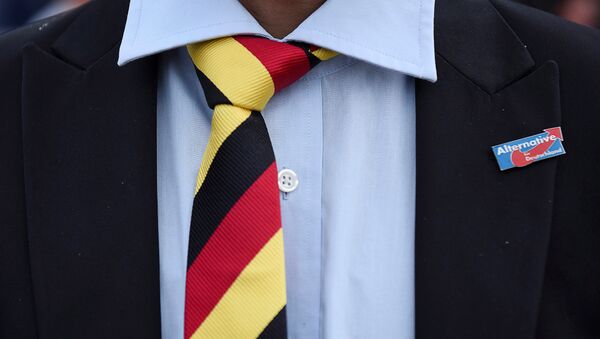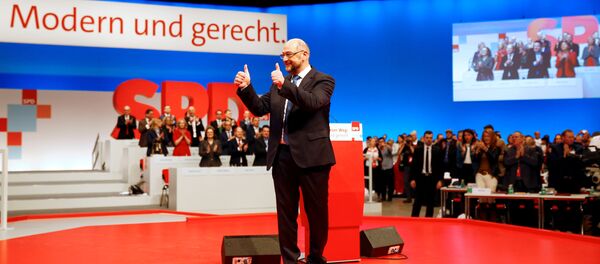In an interview with German Funke Mediengruppe, Gabriel mentioned a popular position among the members of the Social Democratic Party (SPD), who believe that forming a minority government would be an acceptable alternative in overcoming the nation's political deadlock.
"I am rather skeptical about this option because an unstable government in Germany might supposedly lead to an earthquake in Europe. But all the options must be discussed," Gabriel said.
On November, 20 the German Free Democratic Party (FDP) announced its withdrawal from the coalition talks with the union of the CDU/CSU and the Greens (prospective 'Jamaica coalition'). The FDP withdrew from Jamaica coalition negotiations with the CDU/CSU alliance and the Greens, with the remaining parties only capable of forming a minority government. The SPD and CDU/CSU agreed to enter coalition talks, although the Social Democrats had initially refused to form the so-called Grand Coalition.
READ MORE: Germany's SPD Leader Schulz Calls for 'United States of Europe' by 2025
In the federal elections on September 24, the alliance of the Christian Democratic Union (CDU) and its Bavarian partner Christian Social Union (CSU) garnered 246 seats in parliament. The SPD came in second with 153 mandates, Alternative for Germany (AfD) party in third with 94 seats, Free Democratic Party in fourth with 80 mandates, the Left in fifth with 69 seats, and the Greens in sixth with 67 mandates. The required majority to elect the German chancellor and form a government is 355 seats.



